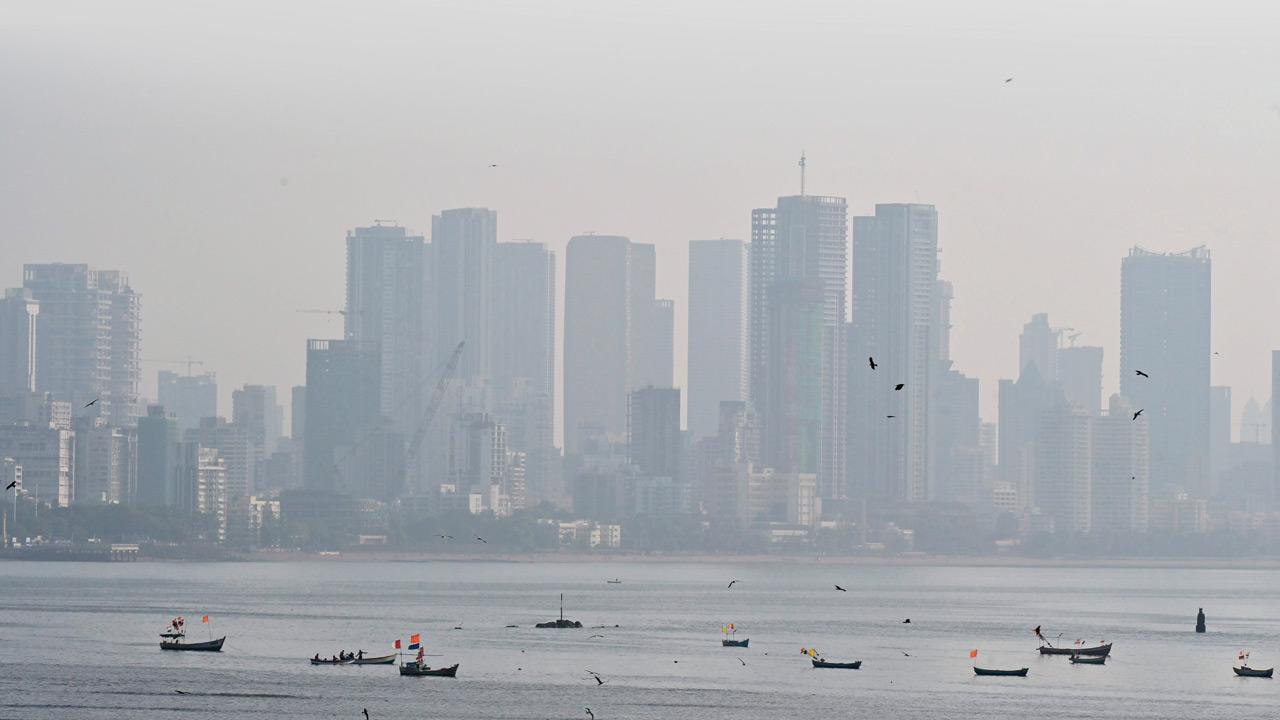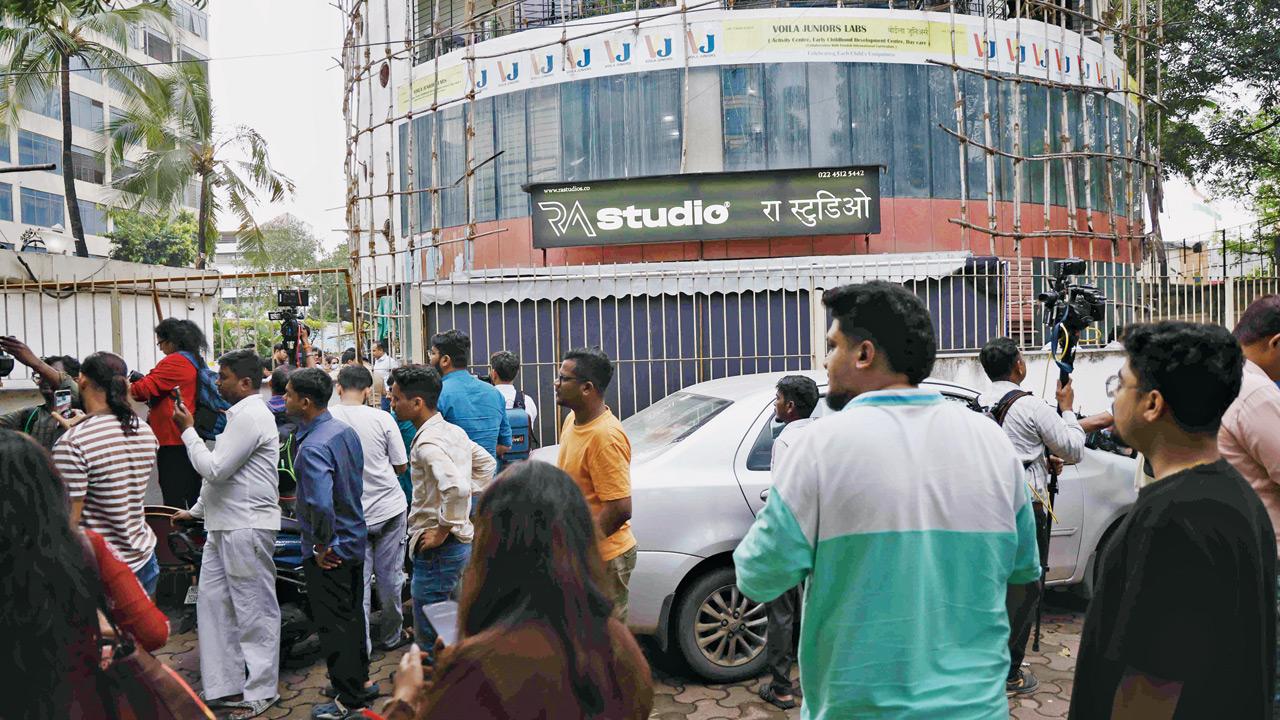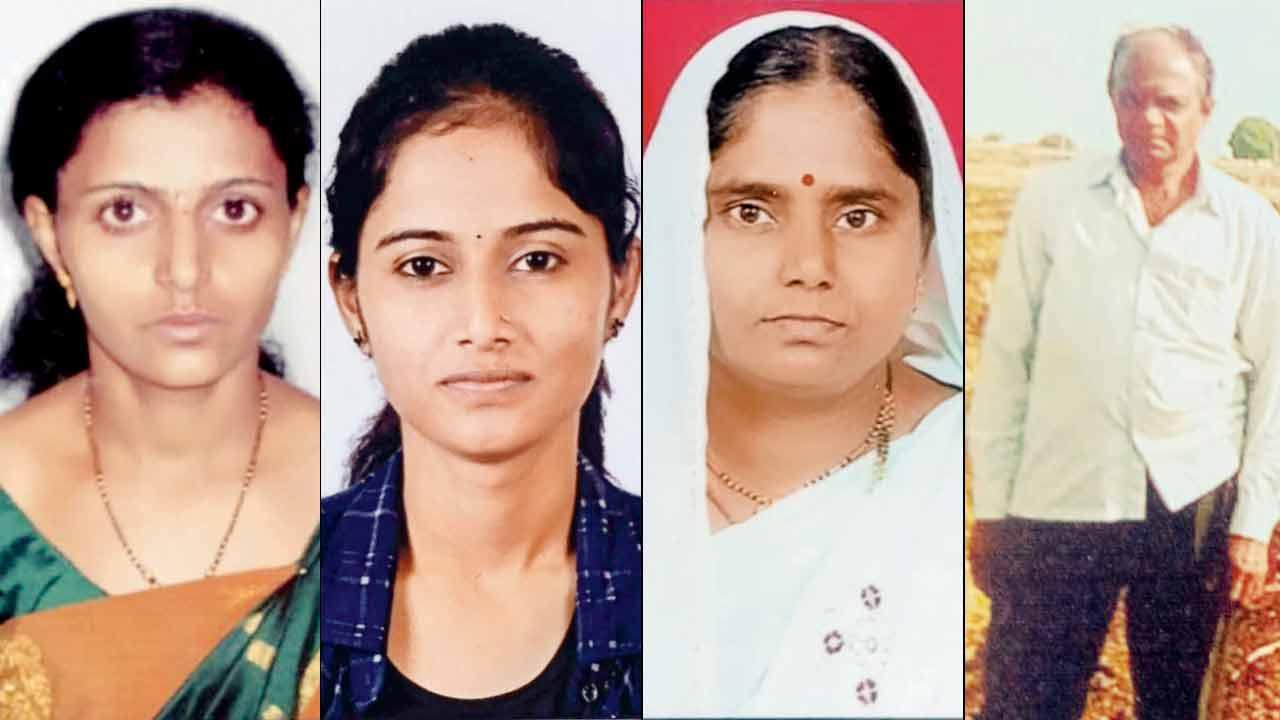Early November’s unseasonal rain after scorching heat has left Mumbaikars confused — and coughing. As a mild winter chill creeps in, the city’s AQI remains in the ‘moderate’ range (160-165), with PM2.5 as the main pollutant. It was no different on Sunday, as the city saw it stable at 160. Doctors warn that this mix of heat, humidity, and haze is a perfect recipe for respiratory and viral illnesses.
“November can bring sudden humidity and fluctuating temperatures,” said Dr Harish Chafle, senior consultant chest physician, bronchoscopist, intensivist and sleep disorders specialist at Gleneagles Hospitals in Parel. “Staying alert to weather shifts helps prevent colds, fatigue, and dehydration.”
Amid the city’s changing weather and worsening AQI, mid-day spoke with Dr Chafle and Dr Sanah Merchant, consultant, general medicine and infectious disease specialist at the Holy Family Hospital in Bandra about the impact on health and the ways one can stay protected.
Unpredictable weather
Dr Merchant: Mumbaikars must prepare for an unusual mix — unseasonable daytime warmth followed by cooler evenings as winter creeps in. Climate variability this year means both extremes can occur in a single day. Wear breathable clothes during the day and carry a light layer for the evening. Stay hydrated to avoid heat exhaustion. Sudden drops in temperature can trigger coughs, chills, and respiratory infections.
Dr Harish Chafle, senior consultant chest physician, bronchoscopist, intensivist and sleep disorders specialist at Gleneagles Hospitals. Pics/By Special Arrangement
Health risks
Dr Chafle: November’s blend of lingering humidity, sudden temperature drops, and rising pollution can trigger respiratory issues, viral infections, and allergies. People should stay hydrated, maintain hygiene, and take precautions against flu and skin problems.
Dr Merchant: This crossover between post-monsoon humidity and early winter dryness increases the risk of infections and allergies. Rapid weather changes can worsen chronic respiratory illnesses like asthma or bronchitis, especially among the elderly. Stagnant rainwater can also increase mosquito-borne diseases. Ensure good ventilation, drink clean water, and use mosquito repellents.
Who are most vulnerable?
Dr Chafle: Children, the elderly, and those with asthma, diabetes, or heart conditions are most vulnerable to November’s fluctuating weather. Women may also experience more fatigue and dehydration due to hormonal factors.
Dr Merchant: People with chronic respiratory or cardiac illnesses are at higher risk. Their immune systems struggle to adapt to rapid weather changes. Avoid crowded spaces, use masks, and stay alert to early symptoms.
Dr Sanah Merchant, consultant, general medicine and infectious disease specialist, Holy Family Hospital
Food for better immunity
Dr Chafle: Load up on seasonal fruits like citrus, amla, and guava, along with leafy greens. Warm soups, turmeric milk, and herbal teas help ward off infections.
Dr Merchant: Fresh fruits like oranges, amla, and guavas — rich in vitamin C — boost immunity. Include vegetables like spinach, methi, and broccoli, and add turmeric, ginger, garlic, and tulsi to meals for anti-inflammatory benefits. Avoid oily, processed foods.
Unseasonal rain adds to risk
Dr Chafle: The prolonged November rains have worsened humidity and waterlogging, creating breeding grounds for infections and mosquitoes. For people with asthma, joint pain, or weak immunity, this dampness can aggravate symptoms.
Dr Merchant: This year’s extended rainfall has delayed the dry season, keeping humidity unusually high. That’s leading to more respiratory, waterborne, and allergic diseases. Keep homes dry and well-ventilated, and get regular check-ups if you have chronic illnesses.
Pollution, coughing spells
Dr Chafle: Pollution worsens in November as cooler air traps pollutants closer to the ground. Common symptoms include persistent cough, throat irritation, breathlessness, watery eyes, and chest discomfort. Seek medical help if symptoms persist.
Dr Merchant: As wind speeds drop, pollutants remain trapped. People may develop wheezing, coughing, or breathlessness, especially those with asthma or bronchitis. Avoid outdoor activity when AQI is poor and use air purifiers indoors if possible.
Treatment and precautions
Dr Chafle: Steam inhalation, saline sprays, and avoiding outdoor exposure during peak pollution hours can ease symptoms. But if a cough lasts more than a week or is accompanied by breathlessness or chest pain, see a doctor immediately.
Dr Merchant: Home remedies such as warm fluids, gargles, and hydration work for mild symptoms. But consult a doctor if fever, breathing difficulty, or chest pain develops. Those with chronic illnesses should monitor themselves closely and keep emergency medicines handy.
Tips to stay healthy
Dr Chafle: Stay hydrated, eat fresh seasonal fruits, and maintain hygiene. Regular exercise, wearing masks outdoors, and avoiding sudden temperature changes go a long way.
Dr Merchant: Wash hands frequently, ventilate homes, wear suitable clothing, and avoid street food. Follow AQI updates to plan your day. Special care must be taken for children and the elderly.











